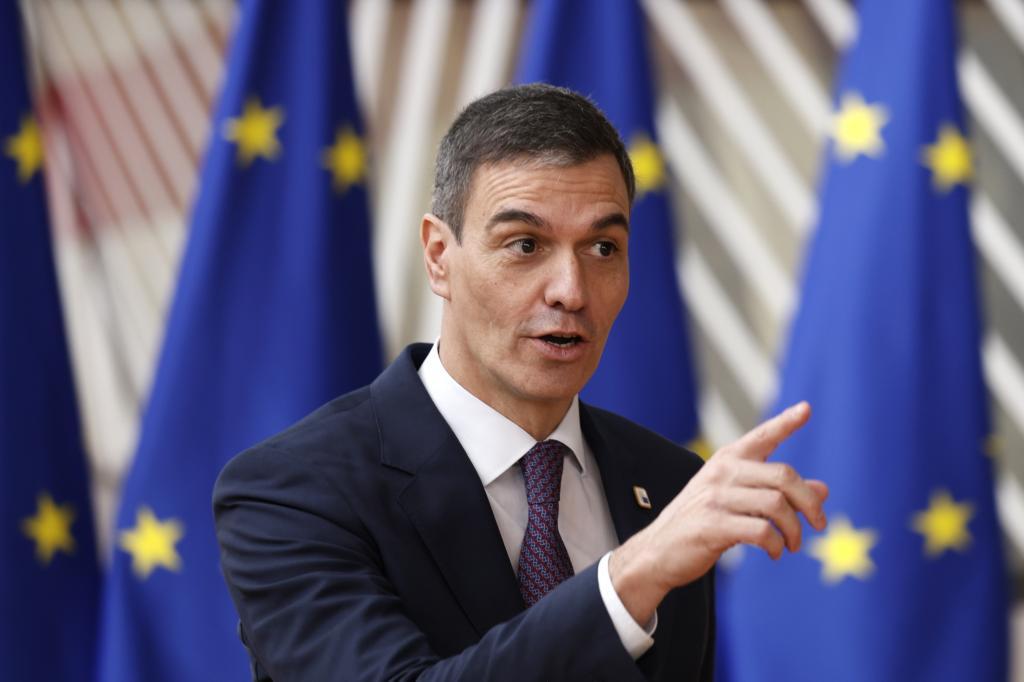In recent years, following the guidelines of the United States and the European Union, the presence of Huawei in the core of 5G networks in Spain gradually disappeared until being completely excluded. Therefore, in Washington and Brussels, they did not hide their surprise when the controversy erupted surrounding the contracts obtained by the Chinese company with the Ministry of the Interior to manage judicial wiretaps. US and European officials have pointed out the "security risks" due to the telecommunications giant's links with the Government of Xi Jinping.
While in Spain this issue continues to heat up with the Popular Party demanding further explanations from the Socialists and asserting that the contract represents a "high risk to national security," China has praised the Pedro Sánchez Government for not yielding to pressure and criticism. Chinese diplomats consulted by this newspaper and state media in the Asian country applaud the Spanish Government's "resilience" against the "unfounded accusations" from Brussels, Washington, and the opposition, defending that the contract with Huawei poses no security risks and that the public tender was awarded independently and fairly.
"This case in Spain reveals a marked contrast between the political hostility shown by some in the West towards Chinese technology companies like Huawei and the pragmatic and rational approach adopted by the Spanish Government in its economic cooperation with China," states an analyst, Jian Junbo, from the Institute of International Studies at Fudan University in Shanghai, in the pages of the People's Daily, the official newspaper of the ruling Chinese Communist Party (CCP).
"Spain's decision to acquire Huawei equipment is clearly based on its own commercial interests. Huawei's products are technologically advanced and competitively priced. There has never been a single proven incident of security problems involving Huawei," a column in The Paper, another Chinese newspaper controlled by the CCP Shanghai committee, points out. "The United States, in another blatant manipulation of anti-China policy, has sought to interfere with Huawei's normal operations in Spain," it concludes.
It was US President Donald Trump who, during his first term, began to focus on Huawei by including the Chinese company on the list of entities that could pose a threat to national security and banning it out of fears that China would use its 5G technology for espionage operations. Subsequently, the European Union urged its members to exclude Huawei from contracts that could jeopardize national security. However, it was Washington that continued to escalate the technological war it had initiated against the Asian superpower, accusing Huawei - without presenting any evidence - of stealing trade secrets, aiding Iran in persecuting dissidents, and even engaging in hidden business with North Korea.
"This attack on Huawei's products is another example of how the US excessively generalizes the concept of national security, politicizes economic and trade matters, and maliciously suppresses Chinese companies," stated the Chinese embassy in Spain in a statement shared by major state media outlets in the Asian country. "The Chinese government requires Chinese companies to act in accordance with the laws and regulations of the countries in which they operate. The data from these products is inaccessible externally and is secure. All stored information is under the exclusive control of the user."
Sources from Huawei in China assert that the recent controversy in Spain makes no sense. "We have signed various agreements with more than 170 countries. If there were truly any evidence or even a hint that there is a backdoor through which customer data ends up in the hands of the Chinese government, no one would hire our services," they emphasize.
When the US banned contracts with Huawei, it did so by recalling that all Chinese companies are bound to Beijing by several national security and espionage laws that require them to share data requested by the Chinese government. Article 7 of the National Intelligence Law of 2017 states that "every organization or citizen shall support, assist, and cooperate with state intelligence work," and the state "shall protect any individual or organization that cooperates." The Counter-Espionage Law of 2014 emphasizes that "when the state security organ investigates and understands a situation of espionage and collects relevant evidence, the relevant organizations and individuals shall cooperate and may not refuse."
"Huawei does not have access to the data. All information stored in the hardware belongs to and is exclusively available to the customer," reiterate the Chinese company. Earlier this August, the President of the Generalitat de Cataluña, Salvador Illa, visited Huawei's headquarters in Beijing during his tour of the Asian country. The same visit that the President of Andalusia, Juanma Moreno, made last year, who has also traveled to China on several occasions, always returning to his land with ambitious commercial and cooperation agreements.
From the Spanish Government, who reminded the Popular Party that one of the most fervent defenders of Huawei has been their spokesperson in the European Parliament, Esteban González Pons, they reiterate these days that the contract with Huawei is not for the control or management of information, but for the purchase of servers where all material will be stored, accessible only to the Police and Civil Guard.
